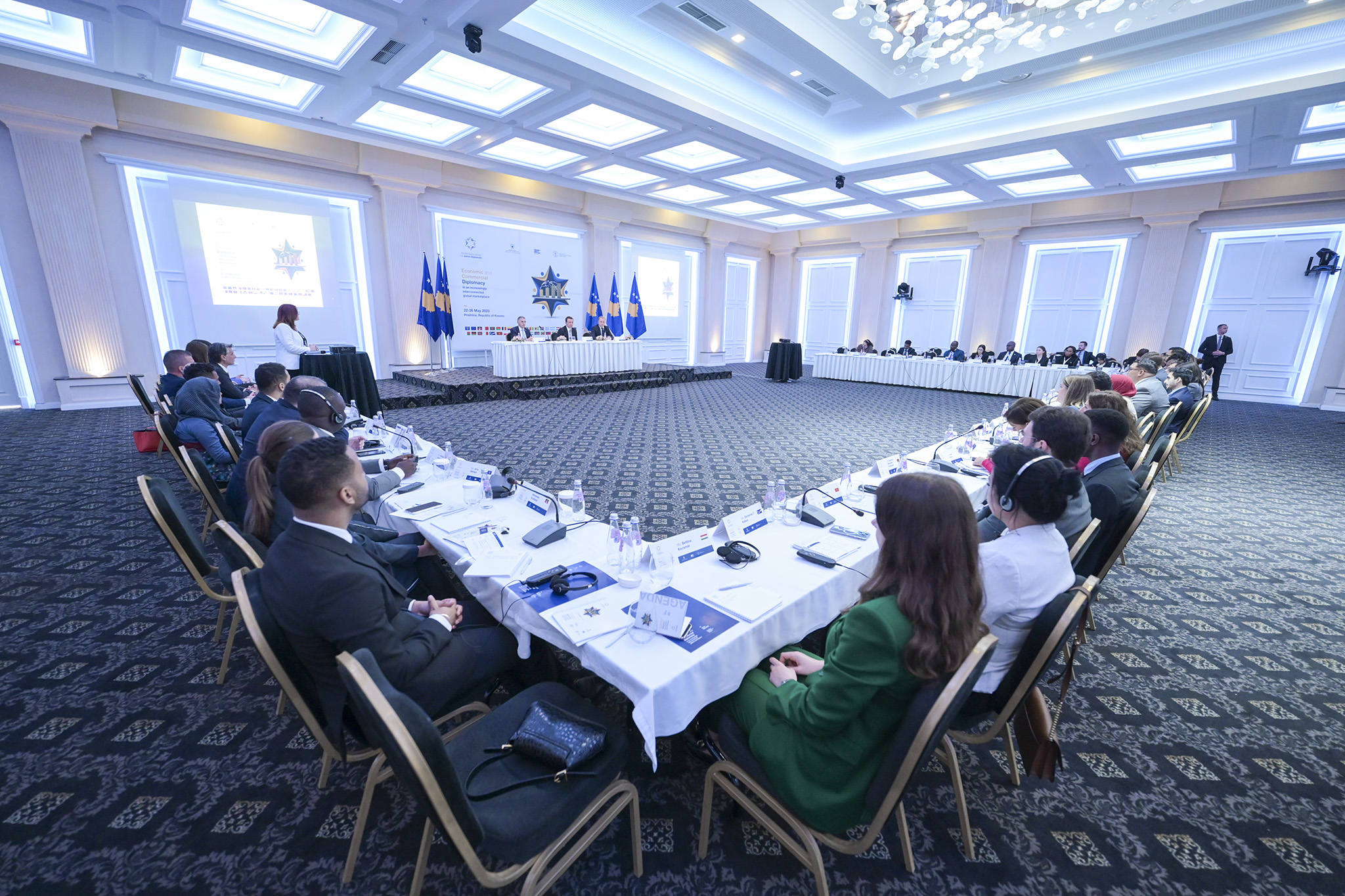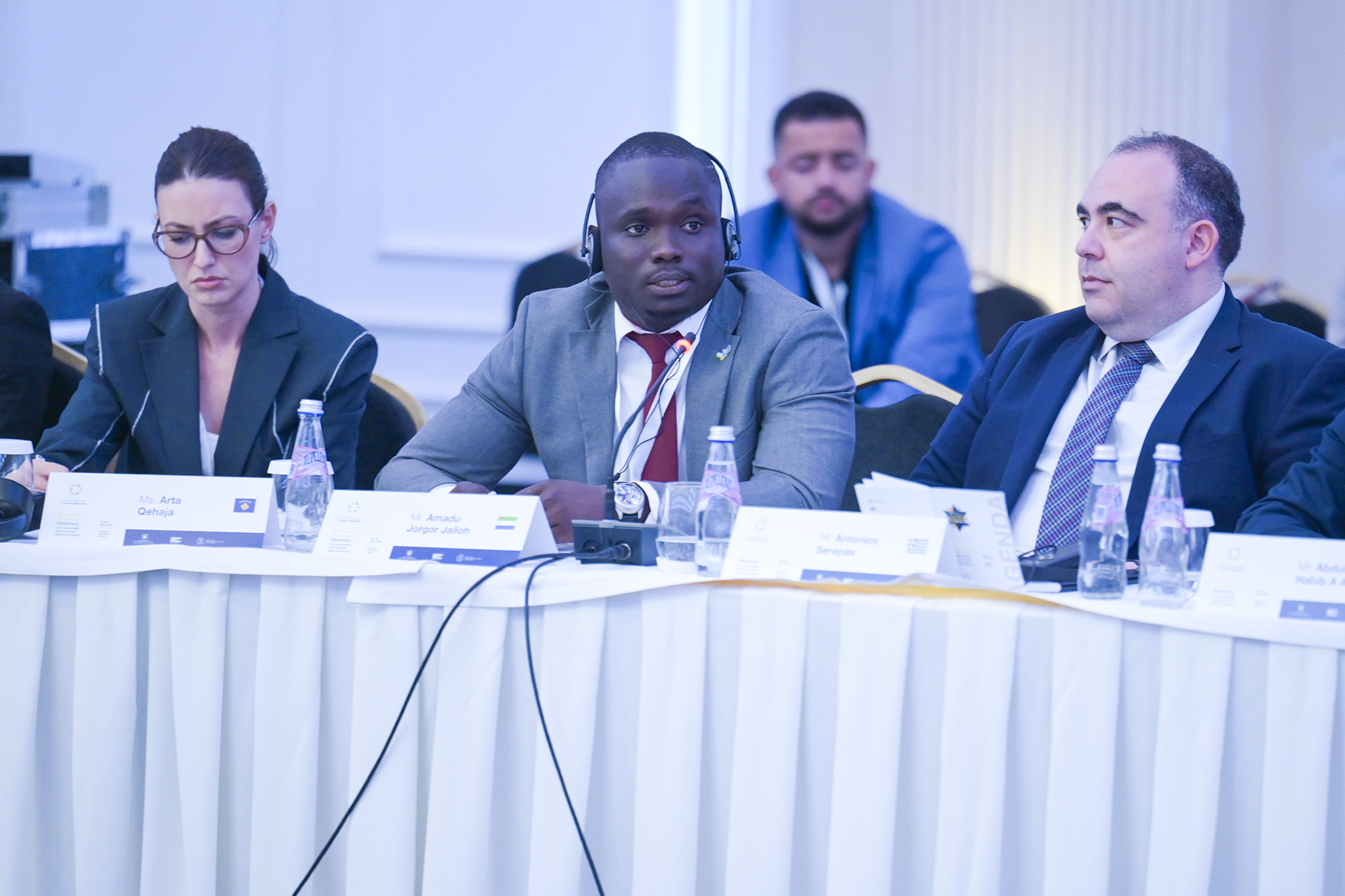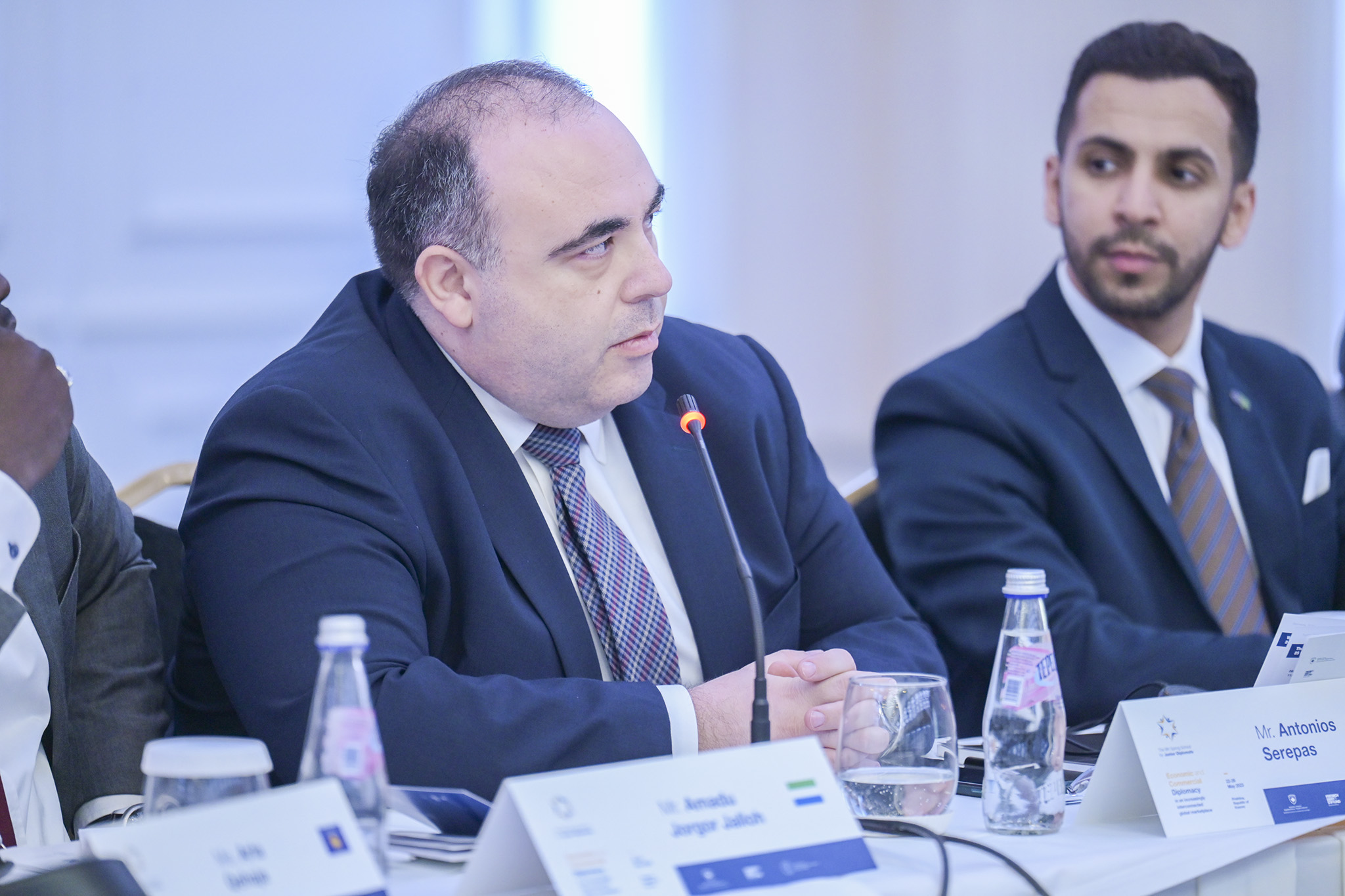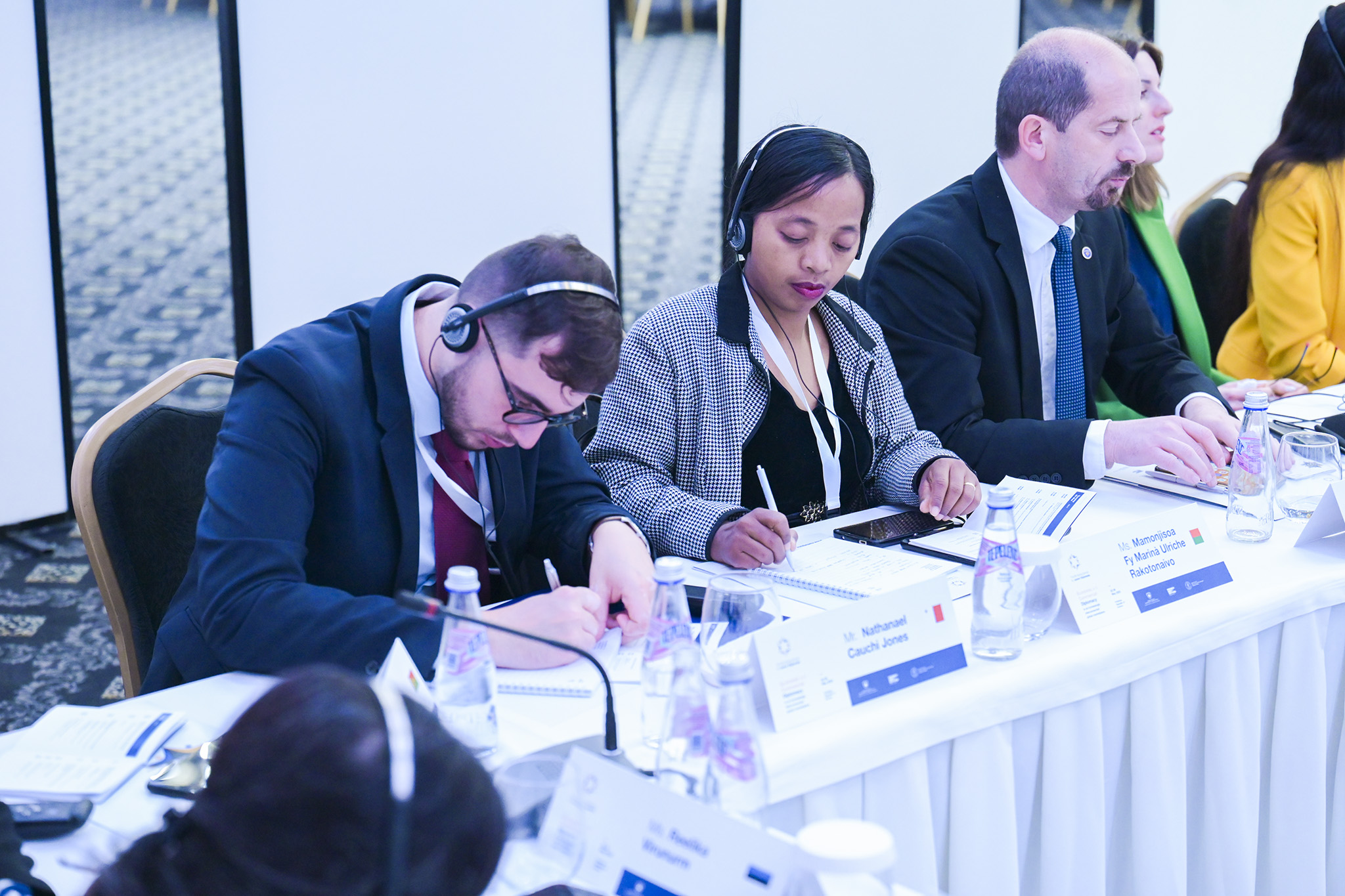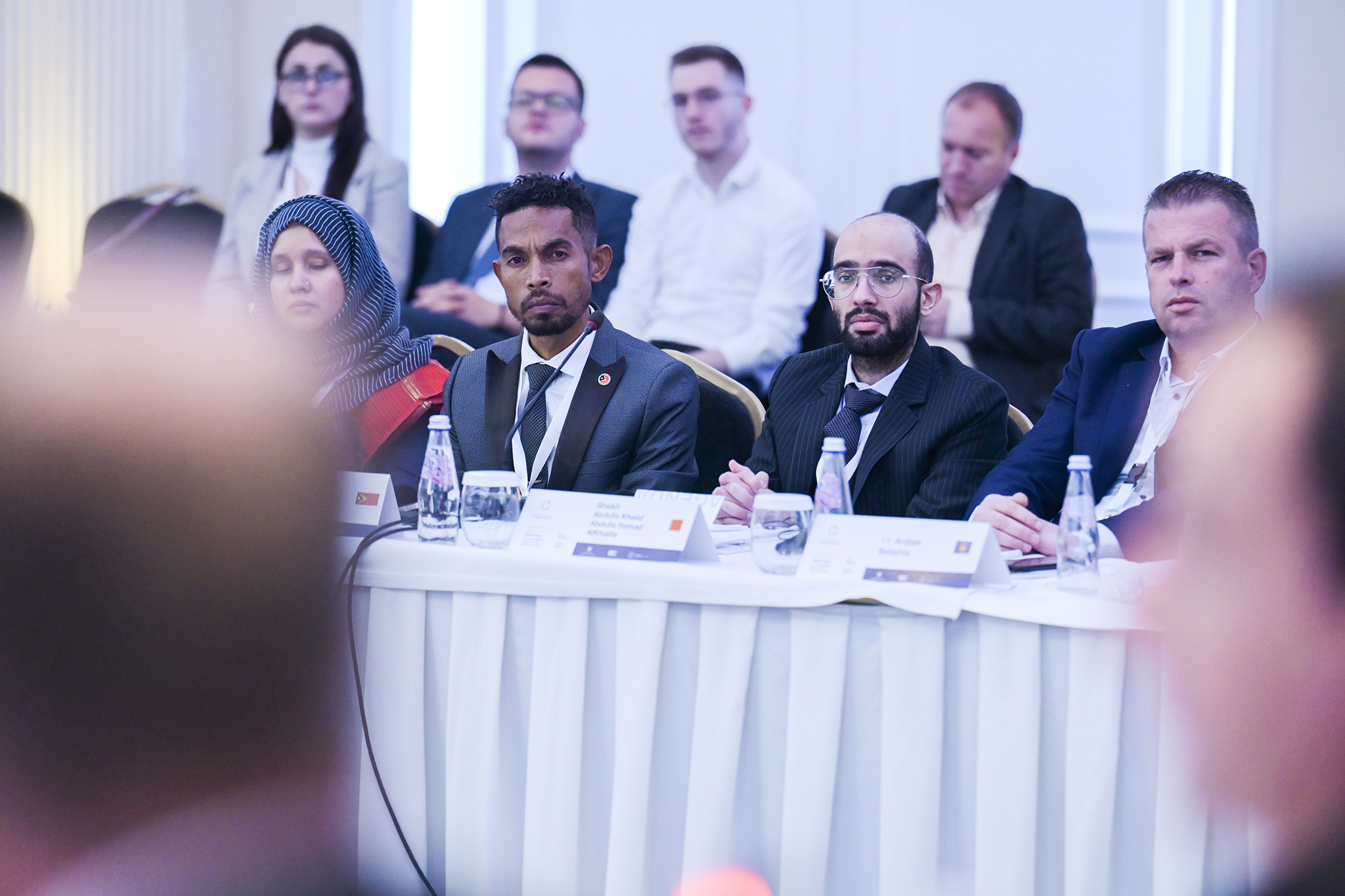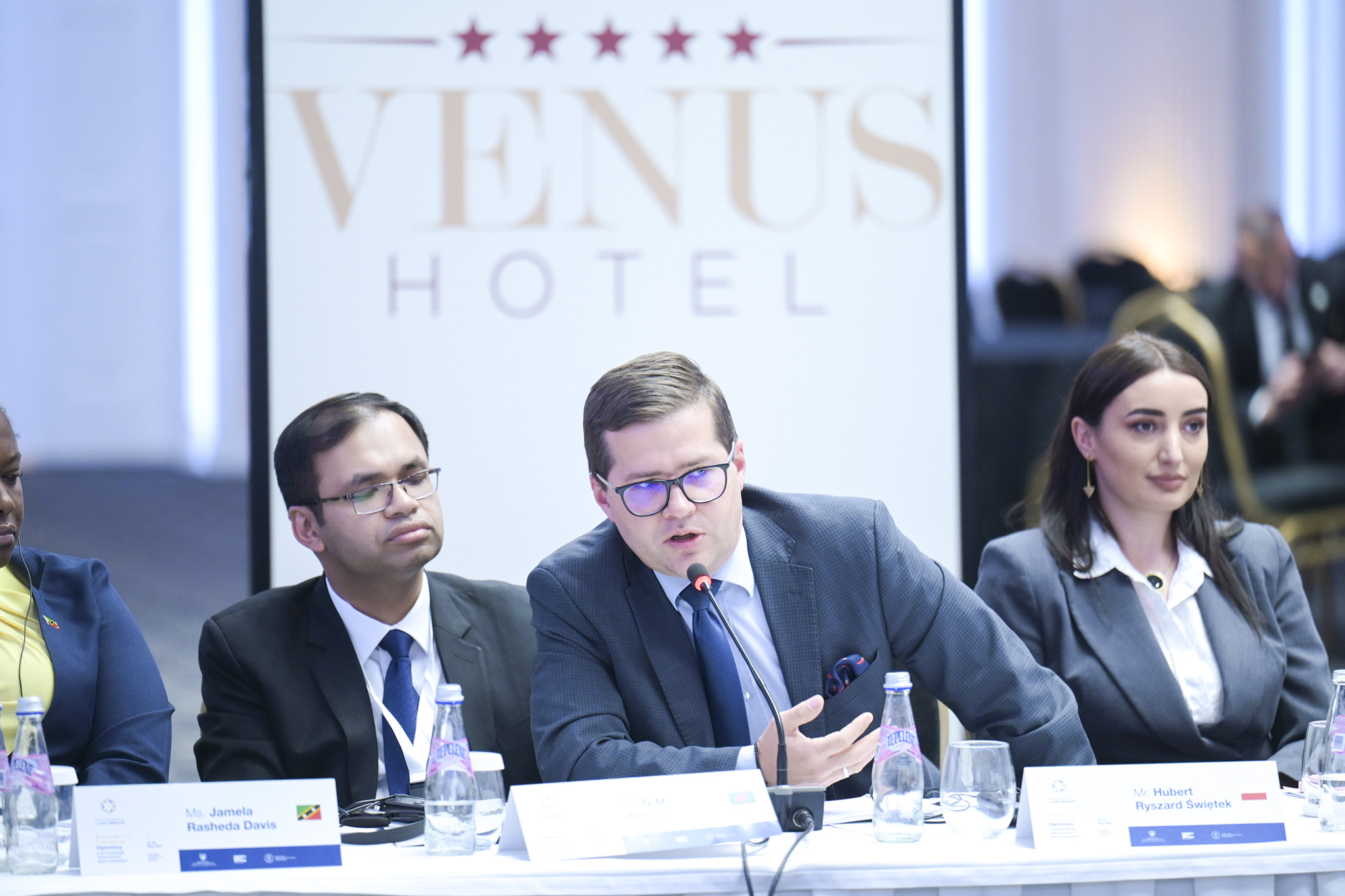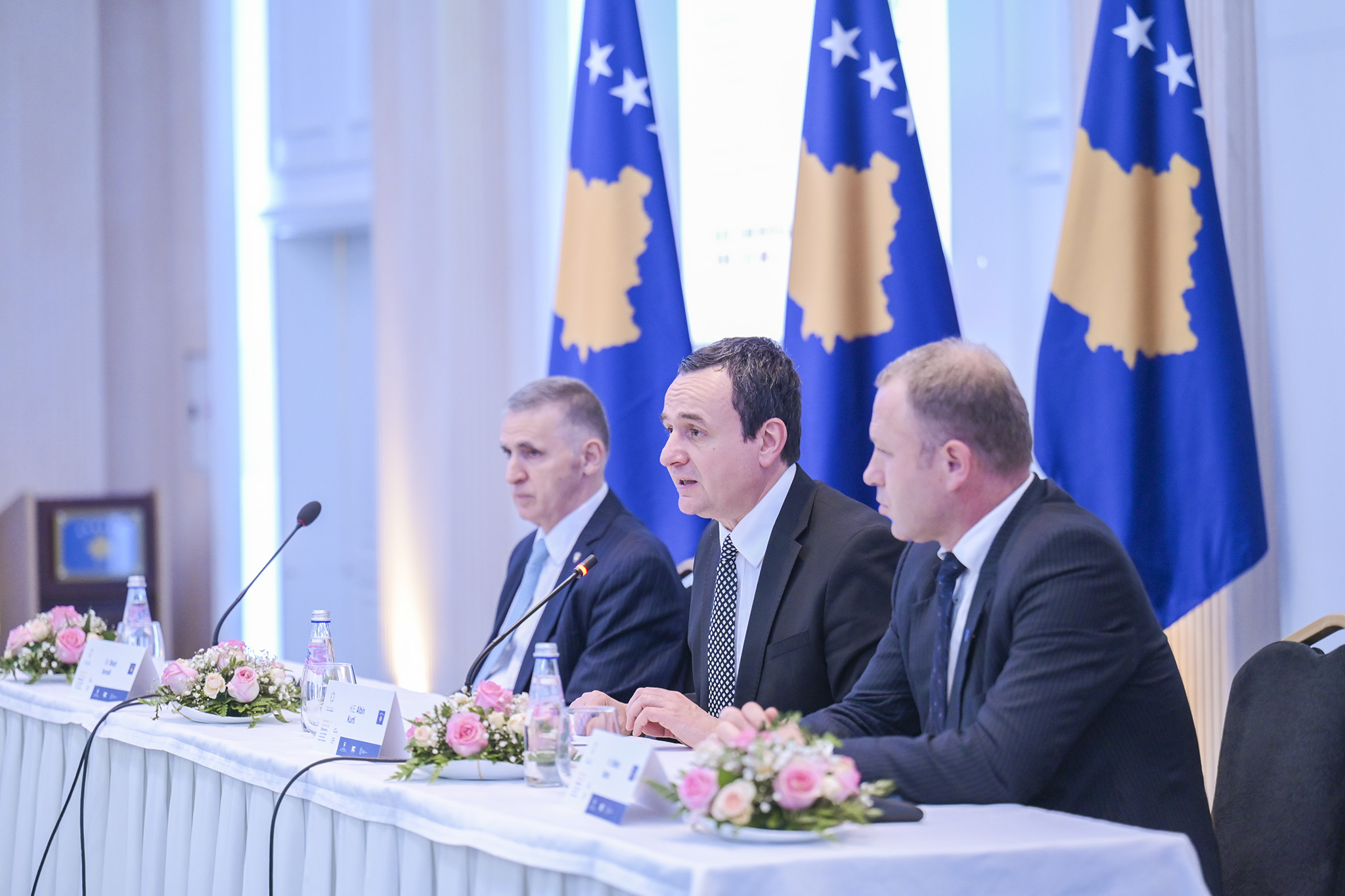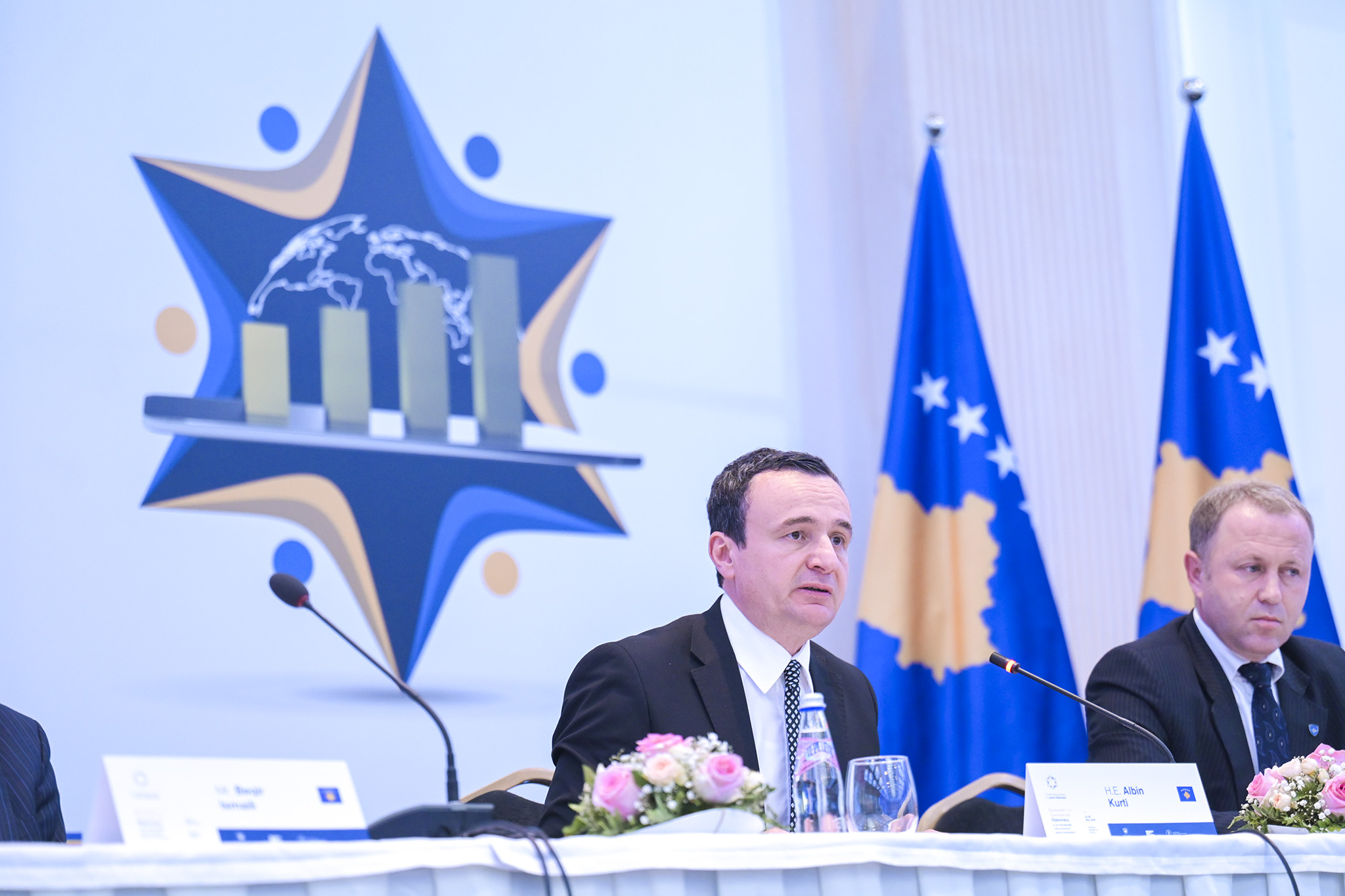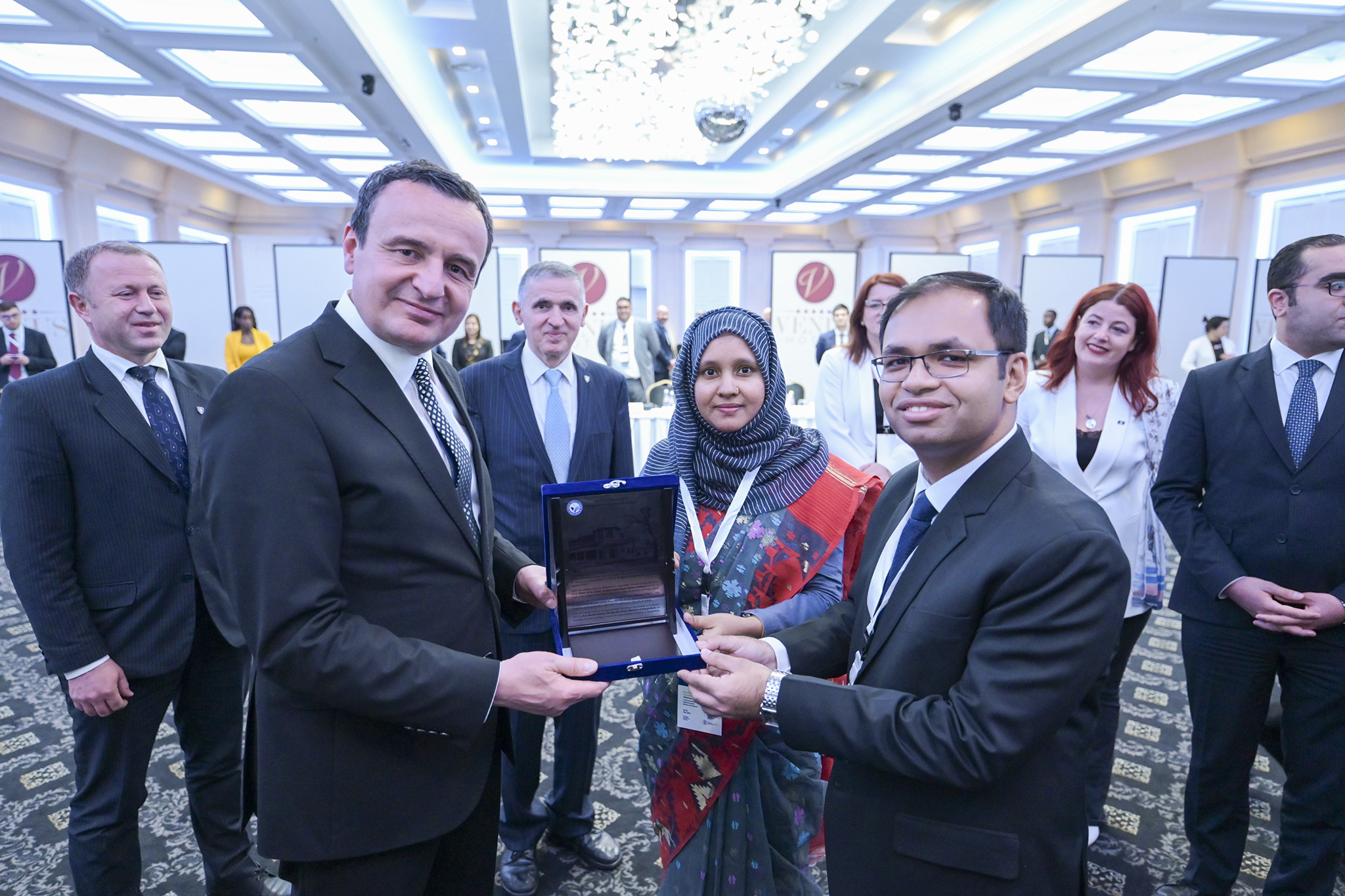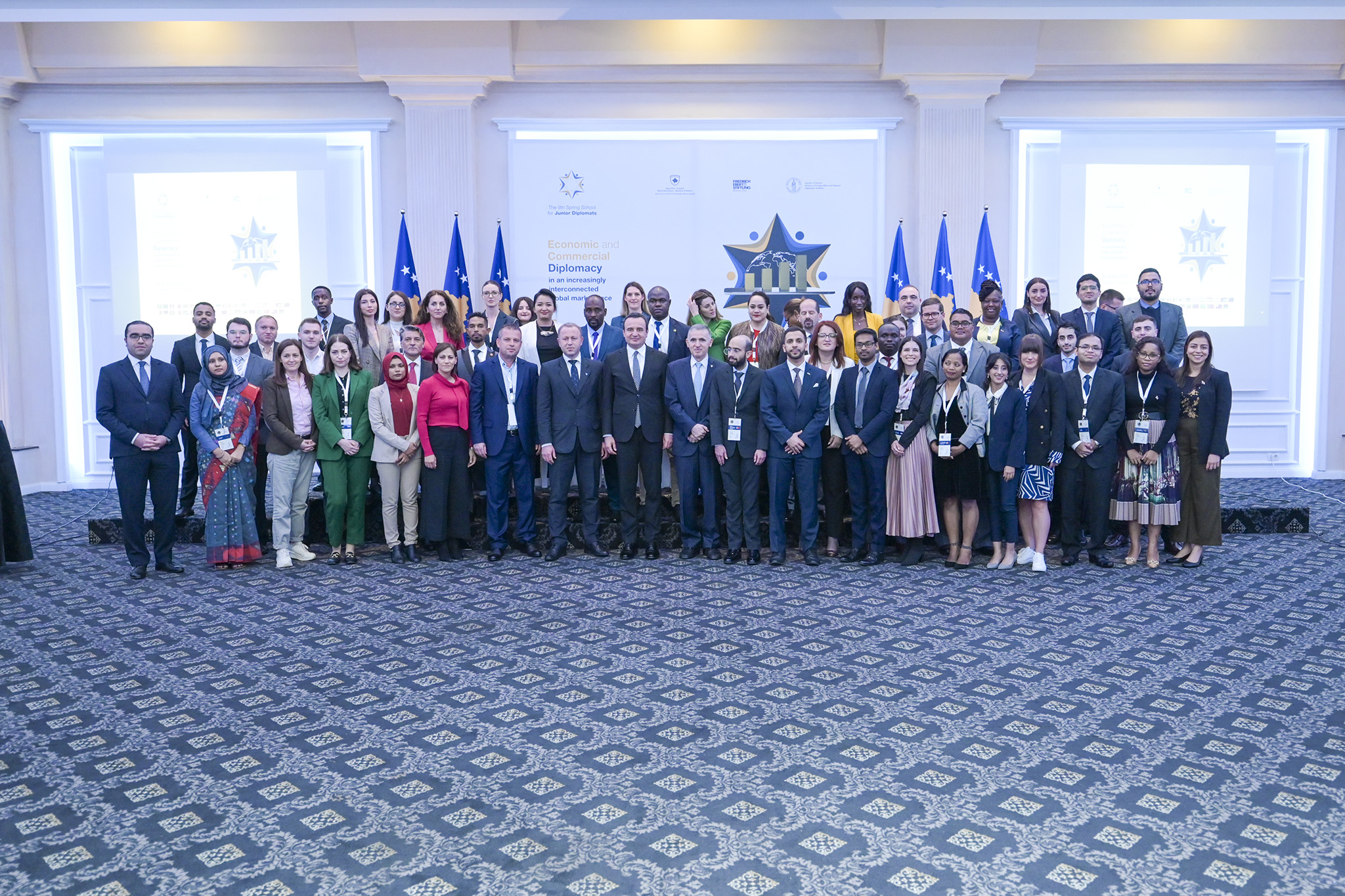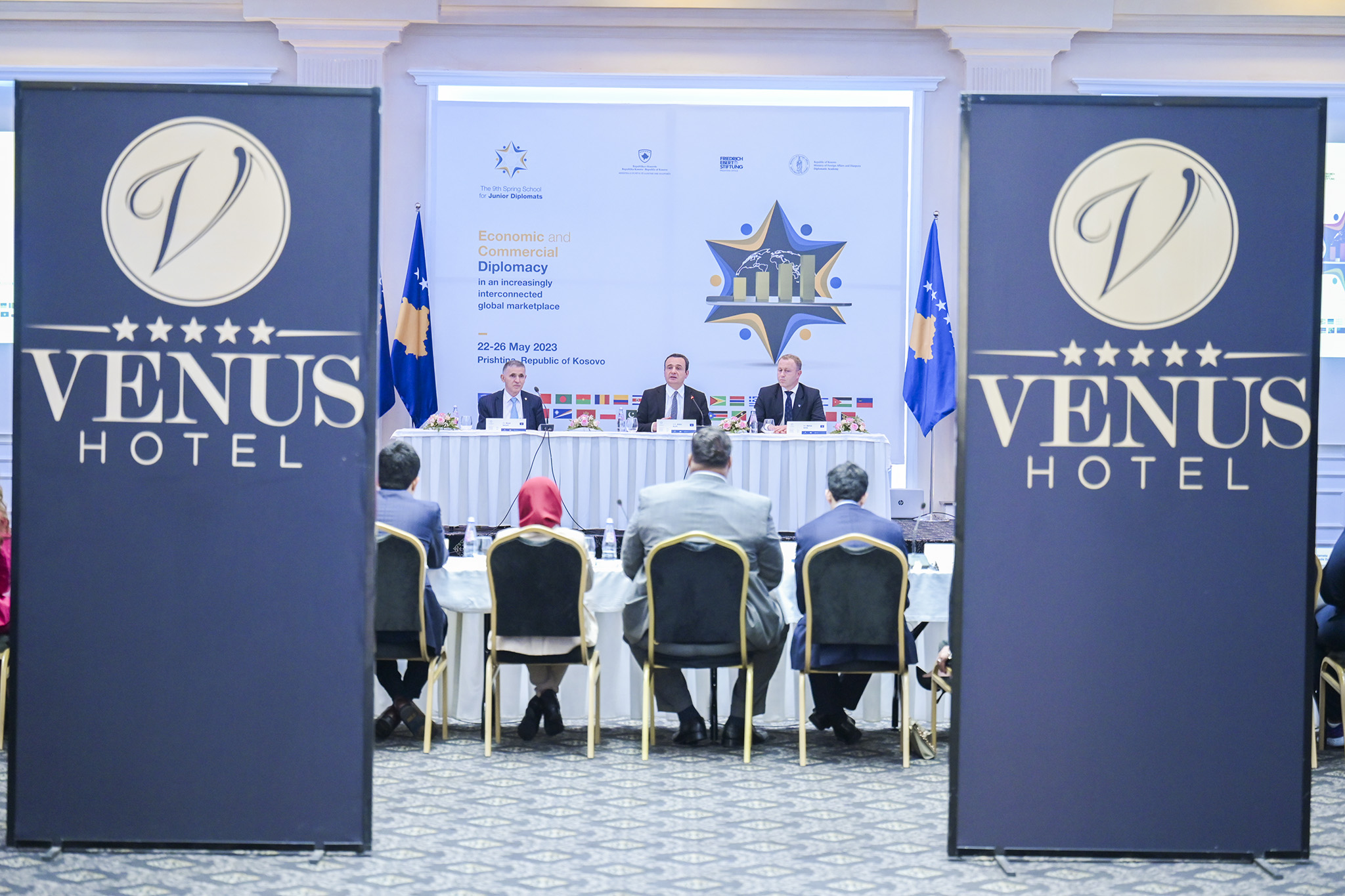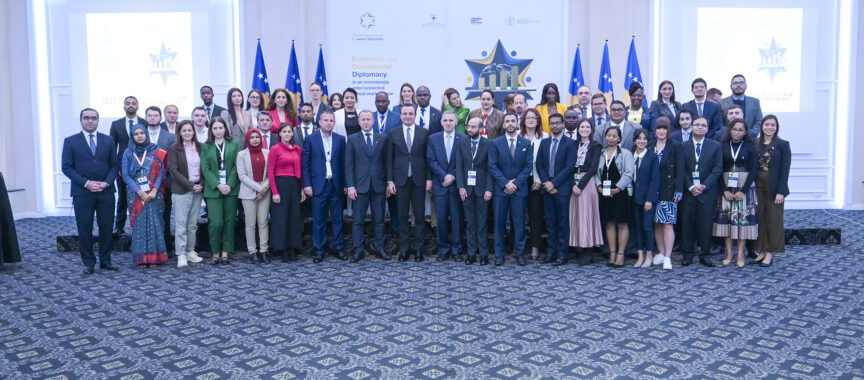Prishtina, 23 May, 2023
The Prime Minister of the Republic of Kosovo, Albin Kurti, today participated in the second day of the 9th edition of the Spring School for Young Diplomats, which is organized by the Diplomatic Academy of the Ministry of Foreign Affairs and Diaspora and the Friedrich Ebert Stiftung.
Prime Minister Kurti said that it is a great pleasure to be with you here today, during the 9th edition of the Spring School for Young Diplomats.
This year’s edition is focused on Economic and Commercial Diplomacy in an increasingly interconnected global market, with participants from around 40 countries.
In his speech, Prime Minister Kurti said that the importance of economic diplomacy cannot be overestimated in the interconnected world in which we live. However, he added that economic diplomacy has played and continues to play a major role in dealing with both crises: providing foreign aid to those in need and imposing sanctions on aggressors.
Strong democracy is a signal of economic ties that a country will pursue internationally, he added.
During his speech, Prime Minister Kurti emphasized that in addition to the challenges, the current time is an invitation for joint work and strengthening the interconnected nature of democratic prosperity and economic progress.
According to the European Bank for Reconstruction and Development, Kosovo ranks first in the Western Balkans in terms of projected economic growth for the years 2023 and 2024.
In closing, he said that we look forward to working together to uphold our democratic principles and pave the way for a more interconnected, prosperous and peaceful world.
Also present at this meeting were Beqir Ismaili, ambassador, acting director general of the Diplomatic Academy, Ministry of Foreign Affairs and Diaspora, as well as Behar Isma, secretary of the Ministry of Foreign Affairs and Diaspora.
Prime Minister Kurti’s speech:
Dear Mr. Beqir Ismaili, Ambassador Acting Director General of the Diplomatic Academy at the Ministry of Foreign Affairs and Diaspora,
Dear Mr. Behar Isma, Secretary General at Ministry of Foreign Affairs and Diaspora
Dear young diplomats,
Dear participants,
It is a great pleasure to be with you today here during the 9th edition of the Spring School for Young Diplomats, organized by the Diplomatic Academy of the Ministry of Foreign Affairs and Diaspora and Friedrich Ebert Stiftung.
This year’s edition is focused on “Economic and Commercial Diplomacy in an increasingly interconnected global marketplace.”
The significance of economic diplomacy cannot be overstated in the intertwined world we live in. Though balancing commercial interests with foreign policy aims has always been an important component of diplomatic work, the ever more interconnected and dynamic world we live in, combined with the need to safeguard and champion shared values, makes aligned economic partnership a cornerstone of modern diplomacy.
When the COVID pandemic silenced the noises of everyday life, we clearly heard the calls for action and accountability, not merely to fight the pandemic but also to transition to a world after it that is fairer, kinder, and safer. The pandemic, together with the Russian invasion of Ukraine, also showed that alarm bells happening in another country can just as loudly be heard at home. Economic diplomacy has played and continues to play a major role in dealing with both crises: supplying foreign aid to those in need and imposing sanctions on the aggressors.
These events have invited us to reconsider how diplomacy must adapt to meet current geopolitical challenges. It is not coincidental that the term “friend-shoring” or allocating supply chains in countries where the political risk is low and political ties are strong, has been a buzzword among economic and political circles these past couple of years. A robust democracy is therefore no longer merely a matter of domestic affairs, but a signal of the economic ties that a country will pursue internationally as well.
We live at a time when technological innovation and the way it has facilitated remote work – among other things – have diffused national boundaries ever more. Aside from the challenges, the present time is an invitation for joint work and strengthening the interlocked nature of democratic prosperity and economic progress.
In the last two years Kosova has successfully committed to this joint project. Again, not by coincidence we have made parallel leaps in our democratic governance as well as economic prosperity. Prioritizing the fight against corruption and crime, we launched over 850 anti-crime operations around the entire country and increased our tax income by 66%.
We experienced the largest annual percentage growth (at 10.7%) in our country’s history, doubled Foreign Direct Investment and reduced our export deficit. On average, during each year of our government, we generated more revenue for our economy than in the previous three years combined. In comparison to the year before we took office, our budget deficit last year was 11 times lower. We have used this economic growth to distribute wealth in our society, striving for equality among our citizens, increasing both aid and employment opportunities for all, but especially for young people, women, and non-majority citizens.
Our progress has been confirmed by Transparency International’s report on Corruption Perception, where we went up 20 places in the last two years, and by Reporters Without Borders’ Press Freedom Index, where we went up 22 in the last two years as well. Furthermore, we have applied to join the Council of Europe and the European Union. And there will be no more visa regime for Kosovar citizens starting January 1st, 2024.
We are set to continue our momentum. According to the World Bank and the European Bank for Reconstruction and Development Kosova ranks 1st in the Western Balkan 6 for projected economic growth in 2023 and 2024.
Thus, it is clear that economic diplomacy plays a vital role in the foreign policy landscape of our countries. Yet, to ensure its success, it must be built upon shared values, where economic success is intertwined with a strong democracy. To those of you shaping the current and future state of diplomacy, I invite you to work together so that democratic progress and economic growth are forever mirrored by one another.
We look forward to working together to uphold our democratic principles and to pave the way for a more interconnected, prosperous, and peaceful world.
Thank you!
Last modified: May 24, 2023
